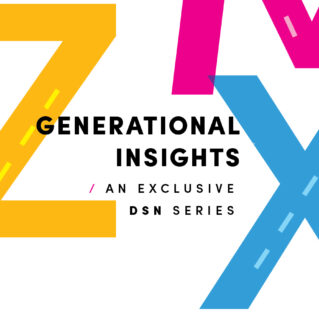So you think millennials have disrupted the market? Just wait until you see what the next generation of consumers has in store for the direct selling industry.
Pinned as lazy, entitled or demanding, the millennial demographic has earned a bad reputation with the generations before them. They are the free thinkers with high expectations who upset the hotel industry by relying on Airbnb for their overnight stays and the employees who eschewed the cubicle, making coworking spaces popular.
And although millennials may be getting all the press, it’s Generation Z, defined as people born between 1995 and 2012, who are quietly beginning to shake up the market in ways that will require radical adjustments from the brands that want their attention.
Gen Zers have grown up in the shadow of the entrepreneurial millennial and will soon be making their mark as adults in the gig economy that they grew up understanding to be business as usual. The negative perceptions that plagued the millennial population will likely be magnified for Generation Z, but leaders within the direct selling industry believe that may not be a bad thing.
“They [Gen Z] have basically grown up on the internet and been spammed with every marketing technique there is.”
— Cara Brook, Founder, Maskcara Beauty
Cara Brook, Maskcara Beauty founder says some of the stuff that millennials and Generation Z are famous for in a negative way are really well designed for direct selling. “They want to work wherever they want; they want to have their own schedules and be their own bosses; they want to be part of something meaningful and powerful,” she says. “Those are all things people kind of make fun of them for. People tell them, ‘You’re right out of high school, you can’t have all these things.’ We’ve found the newer generations don’t think they have to go the traditional route, and that is great for us because we aren’t the traditional route.”
The Media Giant Generation Z Is Deleting
Digital connection is king for younger consumers. It’s no secret that millennials favor image-based social media channels like Instagram and Snapchat, but Origin, a Boston-based market research company, found that 34 percent of Generation Z had permanently deleted select social media accounts and 64 percent were taking a break. The biggest loser? Facebook.

What has been the backbone of marketing strategies for the aged 30-55 demographic, a heavily populated segment of direct selling, Facebook is quickly becoming lackluster for the up and coming generations. In fact, only nine percent of teens say Facebook is their preferred social media platform. Business Insider described Facebook as a way for today’s teens to “keep up with their parents”—signaling to brands hoping to pitch to younger consumers that it’s time to look elsewhere.
Despite casting off the social media giants of their parents’ generations, Generation Z is still very much a virtually connected group. Ninety‑one percent of Generation Z uses at least one social media account, and the average teen spends about two and a half hours on electronic devices, primarily their phones, each day. Perhaps having watched their parents overshare through social media, Generation Z has swung the pendulum in the opposite direction, instead valuing privacy and, as a result, posting differently and with less public frequency than the generations before them. Generation Z tends to prefer secretive apps like Snapchat, which deletes images and messages after being viewed, or the stories features on Instagram that allows videos and pictures to expire after a limited amount of time. However, Generation Z’s disconnect from the social media blitz of generations before them doesn’t make them any less prepared to build a business.
69% of Gen Z would rather have working internet than a working bathroom.
“Generation Z is the generation of micro-influencers,” says Chrissy Marriner, Sweet Minerals Co-Founder and Vice President of Digital Strategy. “They’re on Instagram building an audience online and then furthering the relationship. They might not have a huge audience of 10,000 plus, but you can build a business with a couple of hundred people watching you.”
Staying ahead of social technology trends is essential for companies to connect with a younger audience, but it can be tricky. “Generation Z is multilingual when it comes to the digital world, and they are fast and furious adopters,” says Calvin Jolley, 4Life Vice President of Corporate Communications. “Things are being rendered obsolete before they even become popular among younger generations.”
Flexibility is crucial and being willing as a company to embrace that requires vision, talent and resources. Jolley says they get a lot of that from hiring millennials in areas that digital immigrants—those over 40—require tutelage. “They’re bringing talents to these areas, and we are engaging more social media platforms and launching new and meaningful apps for younger generations as a result of their employment.”
The Marketing Hook Generation Z Craves
Growing up in a highly connected environment with access to smartphones and Wi-Fi, Generation Z is intuitively more sensitive to marketing. The traditional advertisement or social sharing template that suited previous generations will not be one-size-fits-all for these new consumers.
“They have basically grown up on the internet and been spammed with every marketing technique there is,” Brook says. “You have to come from a very genuine place and avoid any of that tackiness because they are allergic to it.”
That means brands can’t rely on old strategies. There will be no sleight of hand with the younger generation. Prices ending in ninety-nine cents won’t lead them to believe the product is actually cheaper. They’ve seen it all before. What does connect: story.
Gen Z realizes that 44 % of recent college graduates are employed in jobs not requiring a college degree. They are wondering if the college debt is worth it.
“People buy into a story,” Marriner says. “They want to know the people behind it. Nike is huge, but if Nike were to start today, how would they market? It’s not just going to be about shoes and their benefits. It would have to be someone’s story. It has to be a personal connection to the person who is growing the brand. Customers are expecting transparency now, and it will be difficult for brands that don’t build that intimacy.”
Generation Z’s Must-Have for Success
The extent to which Generation Z depends on smartphones will require a paradigm shift for companies seeking to thrive in the future. To build momentum with the younger crowd, a highly functioning app will be non-negotiable. Brook says she has been shocked by how few people even have computers anymore. “If it can’t be done on the phone, they probably can’t do it. We have an app and put a lot of focus into making it so that every single thing you need to do can be done with the touch of a button. They need to be mobile, and the more we can simplify it, the better.”
Generation Z has high expectations of the companies they work for and buy from. They may seem out-of-the-box in the way they approach their careers and purchases, and established businesses will likely face challenges as they seek to accommodate this new age group, but older generations would be wise to take notes and prepare now—before Generation Z takes over the market.
Jolley says he can only imagine the ramifications both positive and negative that this new generation is going to have on our business. “We are doing a lot of things in terms of readying our ship, so to speak, operationally, logistically and programmatically to prepare for the future. It’s all going to come down to adaptability. We’re going to have to adapt, and those who do not adapt will not remain in business.”
Meet Generation Z
By 2020, Generation Z will account for one-third of the U.S. population. Born between 1995 and 2012, they are the most diverse generation in American history and the first to grow up never having experienced life without the internet or smartphones. They are realists, having matured amid the political aftermath of the September 11th attacks and economic effects of the 2008 housing crash. Living through a recession has made them a more price-conscious demographic and one interested in relying on entrepreneurialism for their livelihoods.
Gen Zers are highly connected but spend more time communicating electronically and less time face-to-face with others. Because of this constant connectivity, they expect their work and personal life to intermingle, so their work schedules do not fit inside the traditional nine-to-five boundaries, and the option to work remotely is preferred over a physical office. It is predicted that many teenagers in this generation will forgo the traditional four-year college route.
Generation Z is slower to dive into adulthood than previous generations and take longer to settle into careers and committed relationships. Because of their inherent diversity, they are acutely attuned to equality, especially for marginalized populations, and seek uniqueness through the brands they do business with as well as their future employers.
Millennials |
Generation Z |
|---|---|
| (aka Gen Y) | (aka iGen Centennials) |
| Born 1980 – 1995 | Born after 1995 – 2012 |
| Raised during an economic boom | Grew up in a recession |
| Better attention span | Shorter attention span but faster at processing information |
| Can multitask | Expert at multitasking—grew up using multiple devices at a time |
| Tend to be more collaborative | Tend to be more independent |
| Often described as idealistic | Often described as pragmatic |
| More public with what they share—they grew up sharing all on social media | More private with their thoughts and feelings—lean toward Snapchat where what they post will disappear |
| More focused on the experience than the cost | More focused on the value and saving money |
| Like content that is authentic but polished | Like content that is attainable and not overly polished or Photoshopped |
| Like to buy familiar or recognized brands | Like to celebrate the individual and not be defined by one brand or image |
| More likely to be influenced by celebrities | More likely to listen to “real” people and “real” stories |
| Tend to be professional online shoppers | Prefer to shop in stores or face to face and see a sample of what they are buying |
| Finding what they want is more important than the experience or ease of shopping | Convenience of shopping is more important—tend to be very tech driven and appreciate the easy experience |
| More tolerant and will give a second chance if things do not happen quickly and correctly | More likely to take their business elsewhere if they encounter a problem |
| More traditional thoughts and paths regarding higher education and building their future | More open to other ways of getting an education or good work experience |
| Pioneers in the digital world and like to communicate digitally | Tend to prefer a more personal approach to communication |



